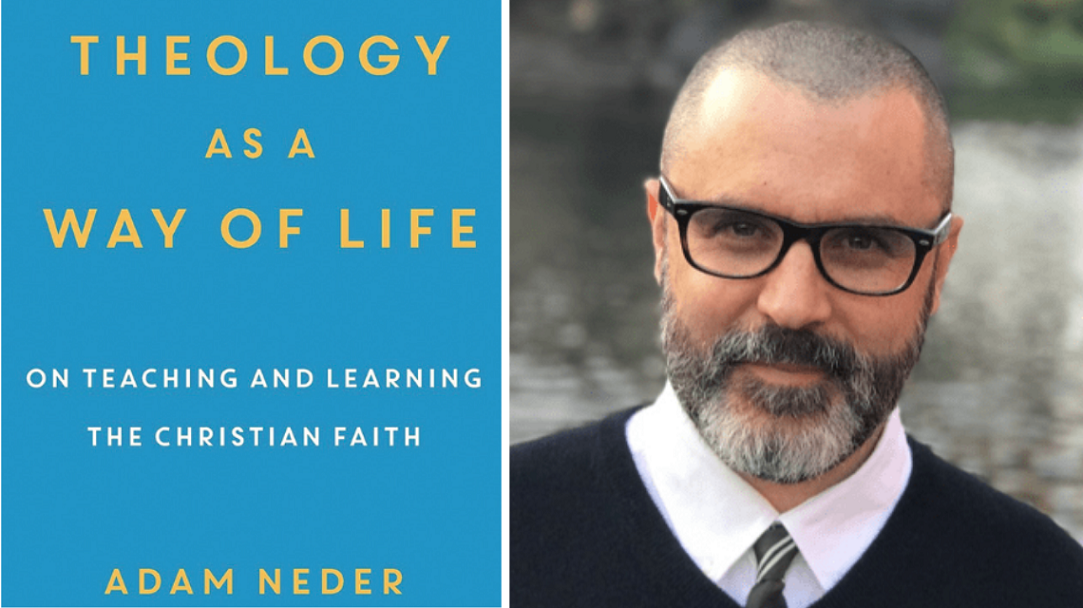 (See the first part of this reflection here.)
(See the first part of this reflection here.)
The second chapter of Neder’s book considers ‘Knowledge.’ Neder argues that true knowledge of God is possible, but it also involves existential participation in the life of God—faith and obedience. Theological educators therefore have a responsibility to think with their students, assisting them to ‘engage in the art of theological imagination’ (50), so they can envision and explore the existential implications of what they are learning. Their responsibility is to think with the students and not for them; they must not confuse indoctrination with education (52)! The aim is to help students think for themselves under the lordship of Christ and within the communion of saints. Neder suggests that teachers’ attempts to side-step the existential implications of doctrine—the pastoral task of theological education—may disguise moral and intellectual cowardice.
Again, the knowledge of God is possible, though only in Jesus Christ who is the epistemological foundation and criterion of all our knowledge of God. Neder approves Barth’s recognition that Feuerbach had in fact given the church a great gift: much Christian teaching falls prey to Feuerbach’s critique, though ‘the only way beyond Feuerbach is through him’ (57).
For the church to avoid the mistake of confusing theology with anthropology, confusing talk about God with talk about ourselves, its thinking must be governed at every point by God’s own self-revelation in Christ. . . . To the extent that Christian theology loses sight of him, or submits itself to some other criterion, it wanders into the dark. . . . Learning Christian theology is a process of learning to read reality in the light of Christ—learning to ‘take every thought captive to obey Christ’ (57-58).
Thus, the knowledge of God involves decision and choice: one simply may not remain undecided in light of the reality revealed in Jesus Christ:
In a pluralistic context, committing oneself passionately to one option among many may seem arbitrary, irrational, and absurd, but the inevitable alternative is to drift along in the current of contemporary society and thus away from a life of integrity and coherence (51).
The chapter includes an excursus on the development of academic theology. Neder notes that prior to the medieval age even the most sophisticated theologians shared an essentially pastoral aim: to guide the church into the truth of the gospel and to equip Christians to live more faithfully and intelligently as disciples of Jesus Christ (45).
But the movement into the context of the medieval university does mark an important phase in a gradual parting of the ways between academic theological scholarship and the life of the church—a division that would in the modern period harden into estrangement. . . . If Christian theology wanted to be accepted as a responsible form of intellectual inquiry, it would have to submit itself to a supposedly universal and objective standard of rationality, one that floats above any specific context or tradition, even when doing so precludes primary Christian affirmations (47-48).
The third chapter, entitled ‘Ethos,’ argues that who the theological educator is communicates and authenticates their teaching—in the perspective of the hearers—or undermines it. A theological educator is a witness rather than a detached observer or commentator. Only one seized by the ‘subject matter’ [= God] of theology can communicate it. The plausibility of our teaching depends on this.
No matter how objectively true our claims about God happen to be, we cannot escape the fact that we are the ones making those claims, and the movement of our lives, whether toward or away from the truth, affects how plausible those claims will sound to students. . . . If our lives do not somehow witness to the truth, somehow reflect and attest the truth in our own limited ways, students will not find us credible… (72-73).
Good credible teachers sound like—themselves (77), though they direct attention away from themselves to another. They are aware of the limits of their knowledge, vision, and authority. There is a coherence between their teaching and their life. But there are also significant threats to be avoided in theological education. Neder speaks of a lack of theological existence, a failure to live in and toward the truth. He speaks of vanity, an excessive concern for one’s own reputation and advancement, and of a deadening professional familiarity in which our teaching somehow becomes disconnected ‘from its living center in God himself’ (76). These dangers undermine the credibility of our teaching. Worse, they hinder the living truth from impacting the lives of students.